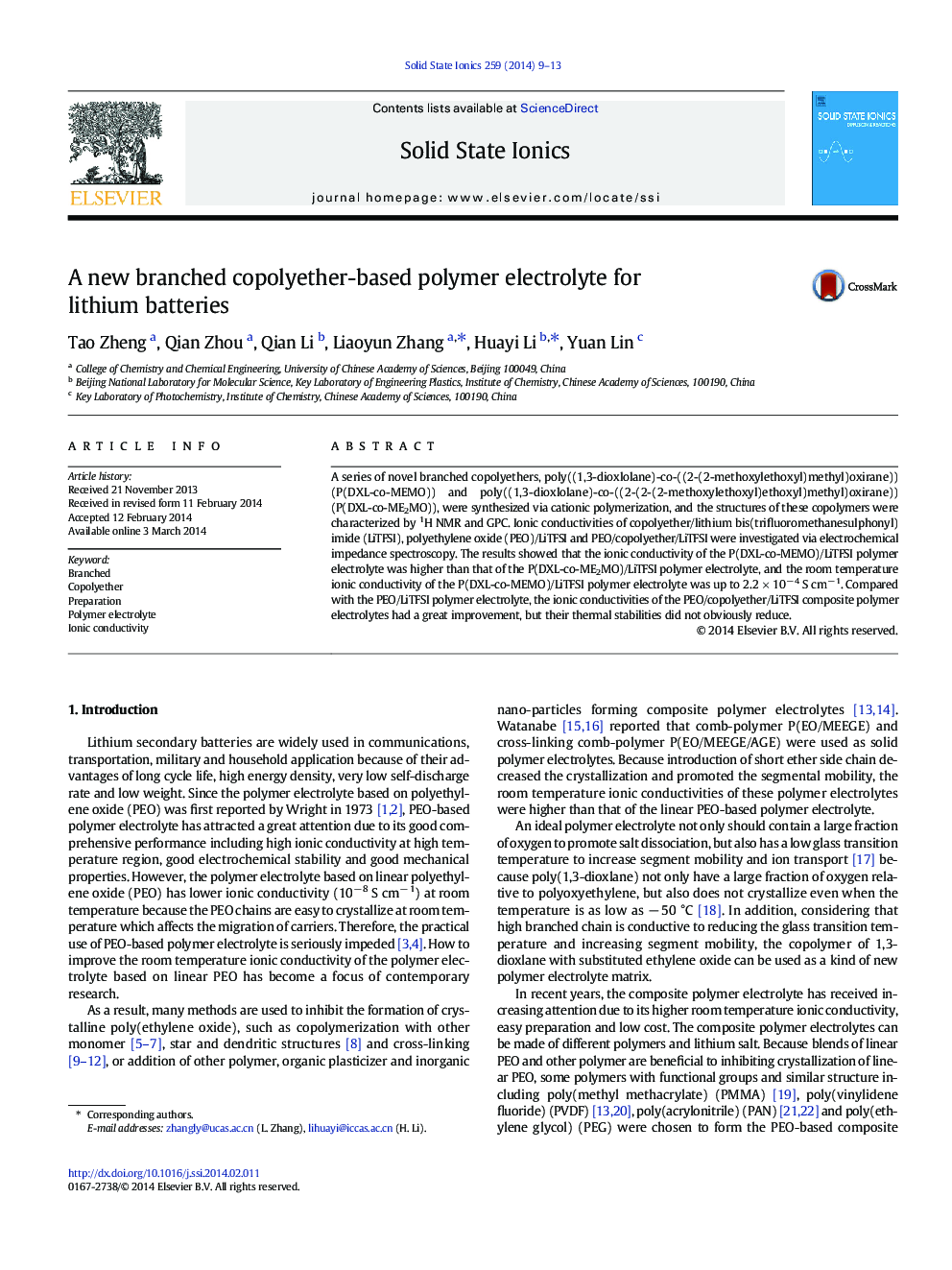| کد مقاله | کد نشریه | سال انتشار | مقاله انگلیسی | نسخه تمام متن |
|---|---|---|---|---|
| 1293928 | 1498283 | 2014 | 5 صفحه PDF | دانلود رایگان |

• A series of novel copolymers were synthesized via cationic polymerization.
• The ionic conductivity of polymer electrolytes has large improvement.
• These polymers and PEO matrix have good compatibility.
• The good compatibility can evidently promote ion migration.
A series of novel branched copolyethers, poly((1,3-dioxlolane)-co-((2-(2-methoxylethoxyl)methyl)oxirane)) (P(DXL-co-MEMO)) and poly((1,3-dioxlolane)-co-((2-(2-(2-methoxylethoxyl)ethoxyl)methyl)oxirane)) (P(DXL-co-ME2MO)), were synthesized via cationic polymerization, and the structures of these copolymers were characterized by 1H NMR and GPC. Ionic conductivities of copolyether/lithium bis(trifluoromethanesulphonyl)imide (LiTFSI), polyethylene oxide (PEO)/LiTFSI and PEO/copolyether/LiTFSI were investigated via electrochemical impedance spectroscopy. The results showed that the ionic conductivity of the P(DXL-co-MEMO)/LiTFSI polymer electrolyte was higher than that of the P(DXL-co-ME2MO)/LiTFSI polymer electrolyte, and the room temperature ionic conductivity of the P(DXL-co-MEMO)/LiTFSI polymer electrolyte was up to 2.2 × 10− 4 S cm− 1. Compared with the PEO/LiTFSI polymer electrolyte, the ionic conductivities of the PEO/copolyether/LiTFSI composite polymer electrolytes had a great improvement, but their thermal stabilities did not obviously reduce.
Journal: Solid State Ionics - Volume 259, 1 June 2014, Pages 9–13